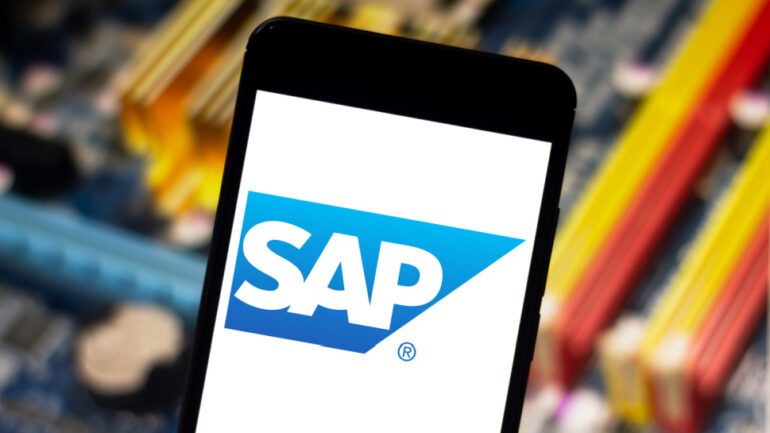TL;DR:
- SAP to introduce AI co-pilot Joule across its applications gradually.
- Users can access Joule through a dedicated button, offering versatile input options.
- Joule access is included in SAP software license agreements; AI use cases are priced based on business value.
- Strict data protection measures are in place for customer data.
- Competitors like Salesforce, Oracle, and ServiceNow also announcing generative AI initiatives.
- SAP’s methodical approach reflects its product diversity and complexity.
- Joule is part of SAP’s three-layered AI strategy.
- SAP is already using generative AI for various tasks.
- Joule is to be integrated into most applications gradually.
- On-premises SAP customers may not gain access to generative AI features.
Main AI News:
In a strategic move reminiscent of industry giants Salesforce and ServiceNow, SAP is set to introduce a groundbreaking AI co-pilot, Joule, gradually integrating it into its suite of applications. By the close of the year, select SAP applications will offer users the option to leverage Joule, a generative AI co-pilot designed to enhance productivity. Subsequently, SAP plans to extend this feature to all its applications in a phased manner over the coming years.
To access Joule, users can simply click a dedicated button within compatible SAP applications, opening the door to a versatile interface. This interface accepts input through various means, allowing users to articulate their requests in natural language, select actions from suggested buttons, or input dates from a calendar picker. Joule, in turn, responds with text, graphics, and tables drawn from both SAP and external data sources, as well as links to other applications and workflows.
Notably, access to the Joule interface will be included as part of existing SAP software license agreements. However, the pricing for the generative AI capabilities that Joule offers will be determined by their specific business value, according to Julia White, SAP’s Chief Marketing and Solutions Officer.
Crucially, SAP is taking rigorous measures to safeguard customer data as it opens up its AI assistant to a wider online audience. The company asserts that no customer data will be utilized to train external foundational AI models. Bharat Sandhu, SAP’s SVP for AI and Application Development Platform, emphasizes that large language models (LLMs) will be hosted within SAP’s data centers whenever possible. Moreover, any data transmitted to external LLMs for processing will be either masked or anonymized.
This strategic move by SAP aligns with recent announcements from other major enterprise software vendors regarding generative AI capabilities, each with its own unique timelines and precision. Salesforce is set to introduce its conversational AI assistant, Einstein Copilot, following pilot trials with select customers. Oracle, on the other hand, anticipates adding generative AI-powered features to many of its cloud applications, albeit with varying release schedules. ServiceNow stands out as the first to offer its generative AI chatbot, Now Assist, to users, albeit through special add-on packs, distinguishing its approach from that of SAP and Salesforce.
In response to competition, Julia White confidently stated, “We’re aware of lots of claims and lots of hype in the broader ecosystem. We’re focused on delivering customer value.”
SAP’s methodical approach reflects its characteristic style, especially given the complexity and diversity of its product portfolio and code base. Joule represents one of the three primary layers in SAP’s AI strategy. The foundation layer, integrated into its Business Technology Platform, manages the orchestration and abstraction of third-party models, while the second layer consists of AI capabilities integrated into applications.
SAP has already harnessed generative AI to assist users in various tasks, including creating job descriptions, generating interview questions, processing delivery notes, and predicting client payment defaults.
This new generative AI interface is poised to become the common engagement layer across all SAP applications, tapping into their existing functions. However, it will be a gradual rollout, with full integration into most applications expected by the following year.
For now, SAP commits to making Joule generally accessible within the current year, on SAP Start (the home page for its cloud applications) and in SuccessFactors, its SaaS HCM tool. Additionally, SAP plans to introduce Joule to the public cloud version of its S/4HANA application suite early next year.
Notably, customers relying on on-premises versions of SAP applications may have to wait indefinitely for access to generative AI features. SAP CEO Christian Klein previously stated that the company’s latest innovations will be primarily delivered through public cloud or private clouds via its Rise with SAP all-in-one offering.
Conclusion:
SAP’s strategic rollout of AI co-pilot Joule underscores its commitment to gradual innovation while safeguarding customer data. This approach aligns with industry trends, with competitors also exploring generative AI. SAP’s measured strategy reflects its product diversity, and Joule is set to become a common engagement layer across its applications, enhancing productivity for users. However, on-premises customers may face limitations in accessing generative AI capabilities.

